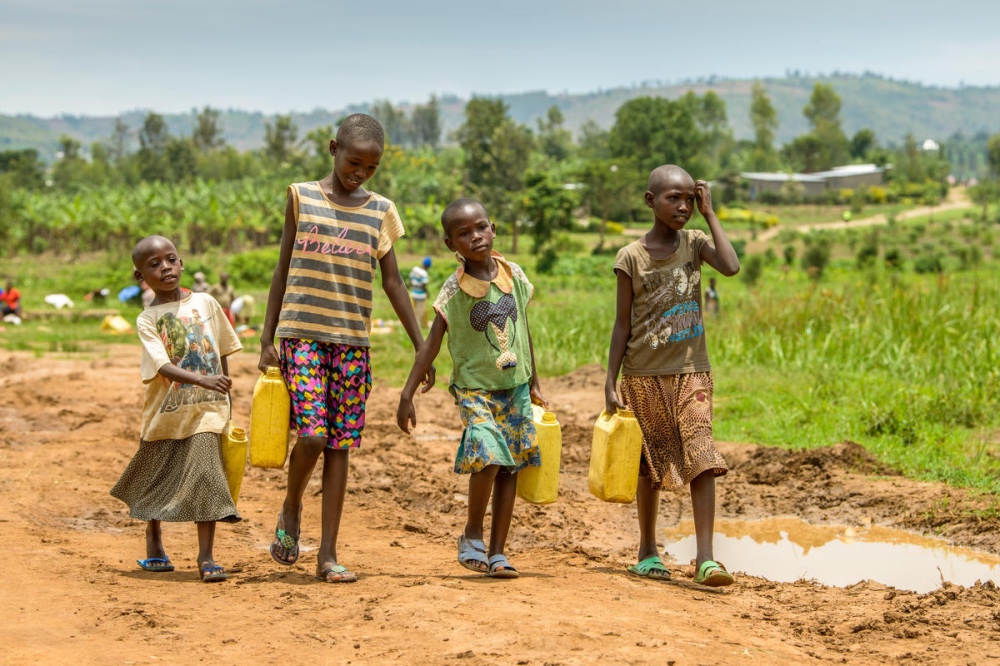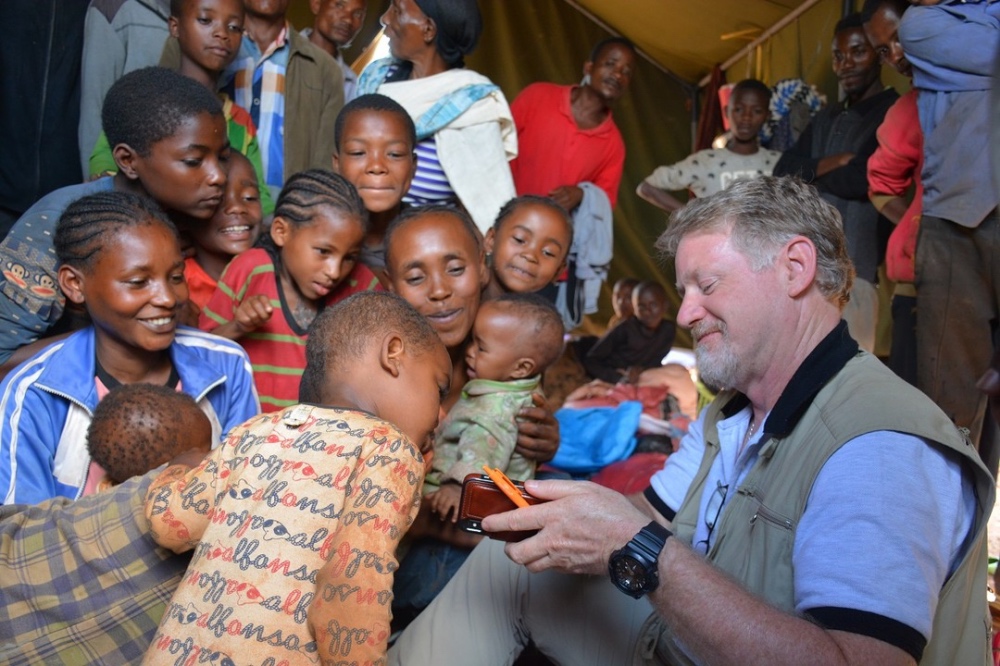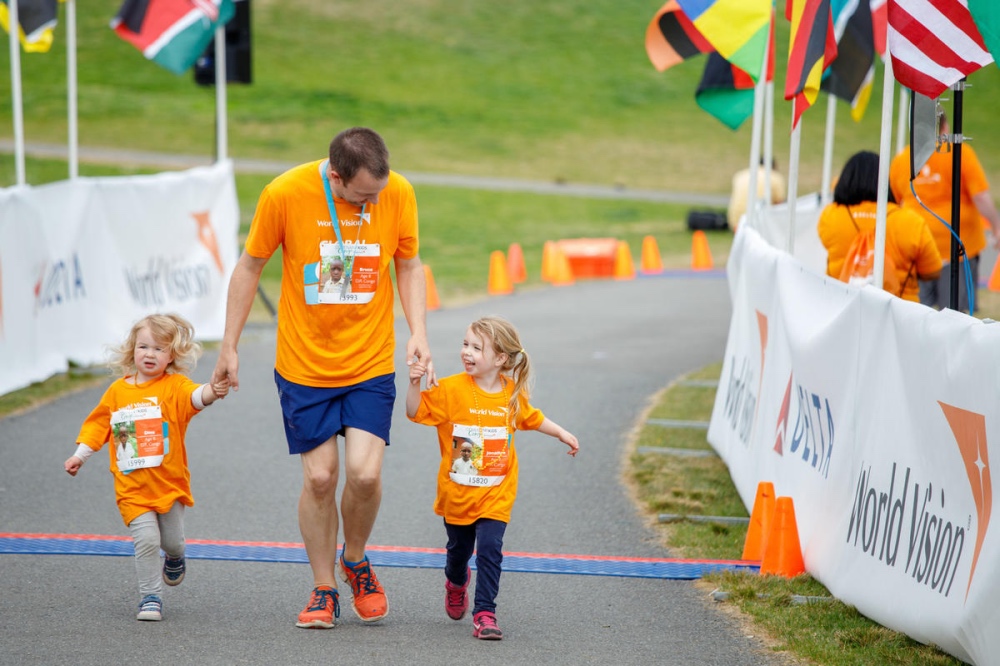
DAVID ADAMS speaks to World Vision Australia’s Daryl Crowden about the world’s water problem…
For millions of people around the world, walking six kilometres to obtain clean water for their family remains part of their daily ritual. But not only can it be time consuming and exhausting work – and restrict the ability of women to generate extra income for their families and that of children to attend school, it can also be dangerous.
Daryl Crowden, head of humanitarian and emergency affairs at World Vision Australia, recalls a time when he was in Rwanda and found that women were having to walk through communities that didn’t want them in order to access clean water.
“Often these people were being attacked as they walked,” he says. “Particularly women – many women were raped and abused as they tried to get water.”
Wild animals also were a problem for those getting water in communities he encountered Rwanda.
“Because they don’t obviously make the path safe, often cases, it’s just a path through the jungle…so it’s not a safe way to go.”

Sandrine, Irene, Esther and Rebecca fill their jerry cans with putrid water from a polluted lake in Rwanda’s Eastern Province. PICTURE: Courtesy of World Vision.
World Vision is aiming to change that situation through its annual ‘Global 6K for Water’. The event sees people in more than 20 countries walking six kilometres – the average distance people who don’t have immediate access to clean, safe water in the developing world have to walk each day to obtain it – in order to raise money to create better water infrastructure.
The Australian arm of the event last year raised close to $A130,000 through 104 events and World Vision Australia is hoping to build on that this year. They’re asking everyone who takes part to try and raise $A100.
“That money, last year, helped us make a difference for 63,000 people. Anything more than that, gives us the opportunity to make a huge difference for more people.”
– Daryl Crowden, World Vision Australia.
“That money, last year, helped us make a difference for 63,000 people,” says Crowden. “Anything more than that gives us the opportunity to make a huge difference for more people.”
Globally, some 844 million people still lack access to clean water within a half hour walk of their home. That’s a figure which includes people caught up in emergencies – like that in Mozambique where people have been surrounded by water thanks to the effects of two recent cyclones but not water that’s clean and safe. But it also includes people who aren’t facing the effects of a natural disaster but who simply don’t have access during their ordinary, day-to-day lives.
Many of these people are living in countries that may not immediately come to mind when thinking about lack of access to clean water.
“For example Vanuatu and the Solomon Islands, places very close to home for us,” says Crowden.
Crowden believes that the main impediment to universal access to clean water around the world is the lack of will to address the issue.
He says that while in many cases, people living in cities and towns in the developing nations he travels to do have clean water available in close proximity – “if not into the house, it’s certainly close to the house”, people living in more remote, rural areas do not have the same access.
“[O]ften they’re just ignored, they’re not as important and so the water infrastructure is not laid out…And where there is no infrastructure, then, of course, there has to be a will again to sink a bore hole or a well or something and often that is not something the government, or any government, will prioritise and so it remains the issue for the local community and they often can’t just afford to do it…”
Pollution and climate change may also play a role. While rural communities may initially be created close to clean water supplies, this many change over time.
“Some of the water holes and things around which communities may well have been established have dried up,” says Crowden. “And so they need to go further to find…one.”

Daryl Crowden meets children in Ethiopia. PICTURE: World Vision.
World Vision is involved in assisting people to gain access to clean, safe water through a number of different ways including, particularly in emergency situations, trucking in water and providing people with the ability to treat water to make it safe to use for cooking or drinking. But the organisation’s assistance also includes projects which have a longer term effect, such as digging bores and laying pipelines to connect communities.
Crowden, who points out that just $A100 is the amount needed for the organisation to be able to start laying pipelines to connect a community, says it can also sometimes be simply a matter of rehabilitating an existing waterhole.
“Sometimes it’s a matter of treating a waterhole that, in the case of a flood for example, has been overwhelmed by silt or whatever,” he says.
“[M]aybe I’m a little bit pessimistic but I think that the thing that stops this happening…is the will to do it. I think globally we have the resources to do it, we have the finances – if we got this together, governments and agencies, we could eradicate this issue. But the will to do it and [prioritising] it as something that we all want to get together on, I’ve yet to see that materialise.”
– Daryl Crowden.
More than 48,000 people across the globe took part in last year’s Global 6K for Water event.
Those taking part in the event can either walk or run it and, while it’s is being officially held next weekend – on 4th May, World Vision are happy for people to run events on a different date.
Crowden, meanwhile, is hopeful, that the day is coming when access to clean, safe water is no longer an issue anywhere in the world.
“I’d love to be able to go on these trips and not to have to be worried about this kind of thing,” he says.
“[But] I think it’s a fair way away – maybe I’m a little bit pessimistic but I think that the thing that stops this happening, as I said, is the will to do it. I think globally we have the resources to do it, we have the finances – if we got this together, governments and agencies, we could eradicate this issue. But the will to do it and [prioritising] it…I’ve yet to see that materialise.”
A family takes part in a Global 6K for Water event in Seattle in the US in 2018, among the more than 44,000 people who took part around the world. PICTURE: World Vision.






